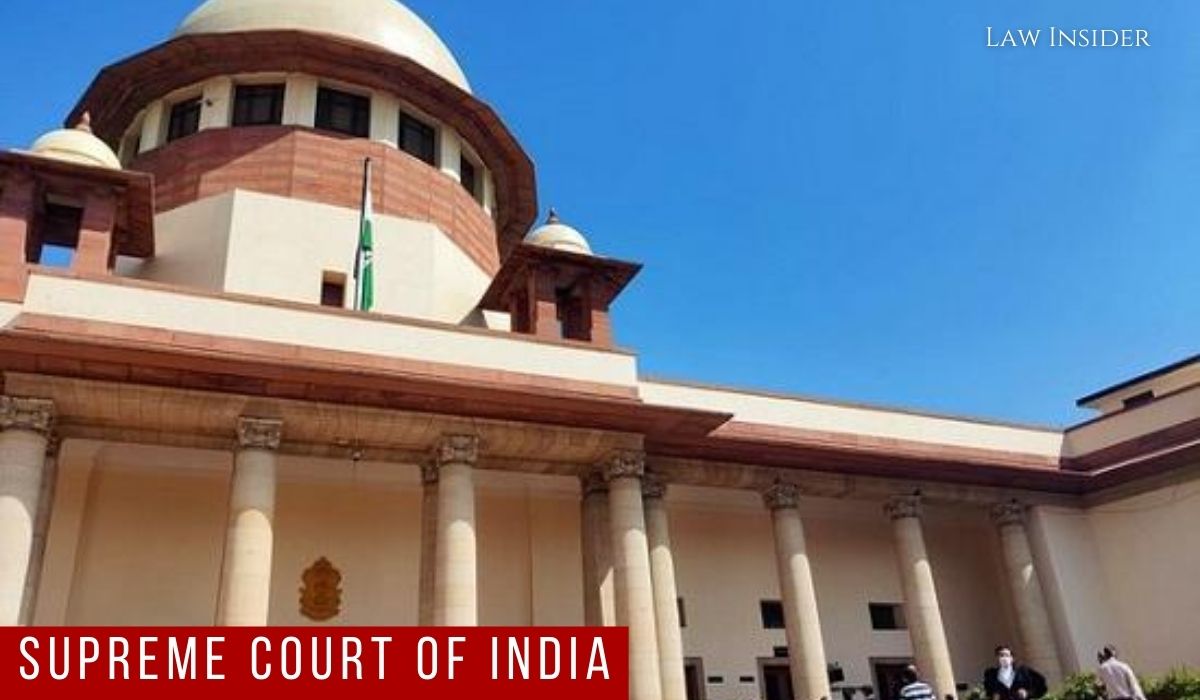Sakina Tashrifwala
Published on: 26 November 2022 at 20:25 IST
The Supreme Court requested the government’s answer to requests that the Special Marriage Act be amended to permit same-sex marriages to be solemnised.
Couples who are unable to wed under their personal law have a legal form of marriage available to them according to the Special Marriage Act of 1954.
The same sex partners Supriyo @ Supriya Chakraborty and Abhay Dang argued that the non-recognition of same-sex marriage amounted to discrimination that struck at the root of LGBTQ+ couples’ dignity and self-fulfillment.
A bench consisting of Chief Justice of India D.Y. Chandrachud and Justice Hima Kohli agreed to hear their arguments. Uday Raj Anand and Parth Phiroze Mehrotra also submitted a different plea.
Separate notices were sent by the bench to the Union of India and the Attorney General of India, and the case was scheduled for hearing in four weeks. It assigned itself a number of cases that were still pending before several High Courts, including those in Delhi and Kerala.
The administration had also stated before the High Courts that the Supreme Court should take up the matter.
This, according to Senior Advocates Mukul Rohatgi, Neeraj Kishan Kaul, Menaka Guruswamy, and Arundhati Katju, was a follow-up to the 2018 Constitution Bench ruling in the Navtej Johar case, which decriminalised homosexuality.
The 1954 Act should provide same-sex couples with the same protection it did for inter-caste and inter-religious couples who wish to get married, according to the petitioners.
According to Mr. Rohatgi, the petition merely sought to gender-neutralize the 1954 Act and did not address personal laws.
According to the Act, a marriage must be between “two persons.” It says nothing about being the union of A and B, said Mr. Rohatgi.
According to Mr. Kaul, there are around 15 pieces of legislation that guarantee citizens who identify as LGBTQ+ the right to salaries, gratuities, adoption, surrogacy, and other rights.
The main concern, according to Ms. Guruswamy, is “how can I safeguard my family.”
“The Act is extra vires the Constitution to the extent that it denies same-sex couples both legal rights as well as the social acceptance and status that results from marriage,”
According to the petition, any two people, regardless of their gender identity or sexual orientation, should be able to marry under the Special Marriage Act of 1954.
If not, it was stated that the Act should be seen to be in violation of the fundamental rights to equality and a life of dignity since “it does not provide for the solemnization of marriage between same sex couple.” Advocates Priya Puri and Shristi Borthakur also spoke for the petition.
Just decriminalising homosexuality is not sufficient; in order to fully advance the rights of LGBTQ+ people, who make up 7% to 8% of the population of the nation, equality must be extended to all aspects of life, including the family, the workplace, and public spaces.
“The ability to choose who we are, to love whom we desire, and to live a life true to our conscience, not only without fear of persecution but also in full-hearted delight and as equal citizens of our country, lies at the heart of personal liberty. Supriyo and Abhay are free to love each other, but they are still unable to establish a joyful, appreciative marriage,” the petition claimed.
It claimed that becoming married came with a plethora of legal obligations, rights, and perks.
They are able to adopt kids or have kids through surrogacy or ART. They automatically qualify for tax advantages, maintenance, inheritance, and consortium rights. Many employment statutes designate them as beneficiaries.
Through compassionate appointments or pensions, the state continues to safeguard a spouse even after death, it was contended. For societal recognition and esteem, marriage was essential.
The LGBTQ+ community was urged by the Supreme Court to forgive history for their “brutal” persecution of homosexuality after it was decriminalised in 2018.
A five-judge Constitution Bench had ruled unanimously that it was unconstitutional for Section 377 of the Indian Penal Code to make private, consenting sex between adults of the same sex illegal.
It had deemed Section 377’s 156-year “tyranny” “irrational, illogical, and clearly arbitrary.” According to Section 377, homosexuality carries a 10-year prison sentence.

